On April 26, the seminar on the status quo and prospects of RMB internationalization was held successfully at Macau University of Science and Technology. This seminar was organized by School of Business of Macau University of Science and Technology and Macau Development Bank. This seminar featured a keynote speech by Mr. Linchun Fan, former Director of the Cross-border RMB Settlement Pilot Office of the Guangzhou Branch of the People’s Bank of China, and recipient of the “May Day Labor Medal” in 2014, and current Deputy General Manager of Yuexin Shipping Co., Ltd.
Ms. Miaomiao Du, President of the Macau Development Bank, Professor Ni Sheng, Dean of School of Business, Professor Chengkun Liu, Director of Sustainable Development Research Institute, Associate Professor Yongjia Lin, Head of the Department of Accounting and Finance, Associate Professor Yu Song and Assistant Professor Kwoping Tam attended the seminar and gave some thoughtful insights on RMB internationalization. This seminar was conducted both online and offline. More than 300 students attended the seminar.
Before the start of the seminar, Ms. Miaomiao Du, President of the Macau Development Bank delivered a welcome speech, and Professor Ni Sheng, Dean of the School of Business of Macau University of Science and Technology, presented a university souvenir to Mr. Fan Linchun.
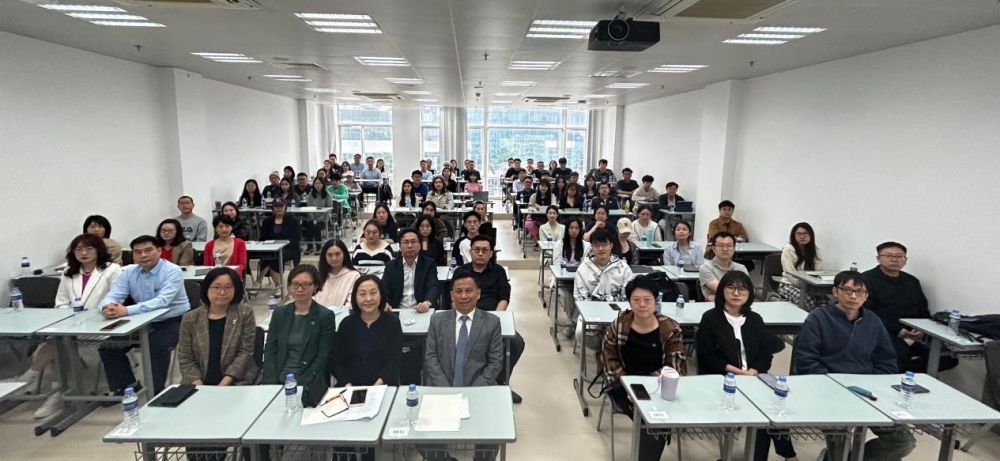
Group Photo
Mr. Fan began his speech by analyzing the internationalization process of RMB through three aspects: payment functions, investment and financing functions, and pricing currency functions. He then introduced the current picture and prospects of the offshore RMB market. Later, he explained the macro background of RMB internationalization, and elaborated on the policy framework and infrastructure of RMB internationalization. Mr. Fan emphasized the need to steadily promote RMB internationalization in response to market demand. He also pointed out that it would be crucial to follow the policy of serving the entity economy and facilitating trade and investment, continuously promote inter-central bank currency cooperation, further improve the infrastructure of RMB internationalization and related business self-discipline systems.
Next, Mr. Fan presented the opportunities and challenges faced by RMB internationalization. Although, situations such as the acceleration of free market, the steady promotion of the “Belt and Road” initiative, and the continuous deepening of currency cooperation between China and ASEAN have created favorable conditions for RMB internationalization. However, due to the depletion of policy dividends, dependence on the US dollar, and the restricted use of RMB in some overseas countries, RMB internationalization still faces severe challenges.
Finally, Mr. Fan provided an outlook on the potential for RMB internationalization and proposed four pillars for RMB internationalization, including implementing market-driven policies, making good top-level designs, promoting offshore RMB markets, improving the supervision and management of cross-border capital.
During the Q&A session, Mr. Fan patiently answered questions raised by the students and encouraged them to actively engage in research and study on the internationalization of the RMB. The seminar ended with enthusiastic applause.
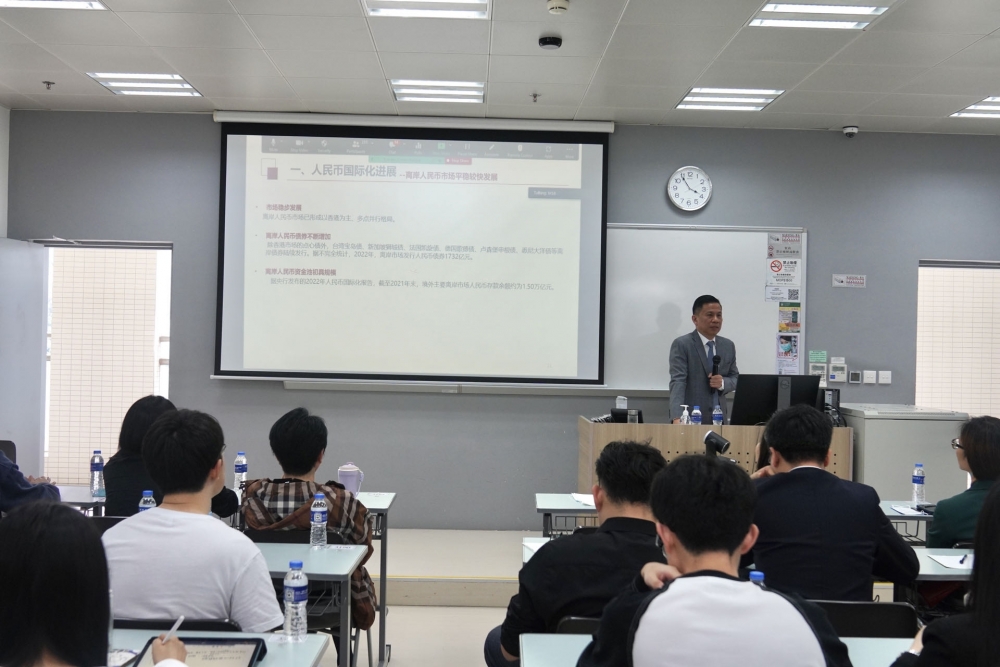
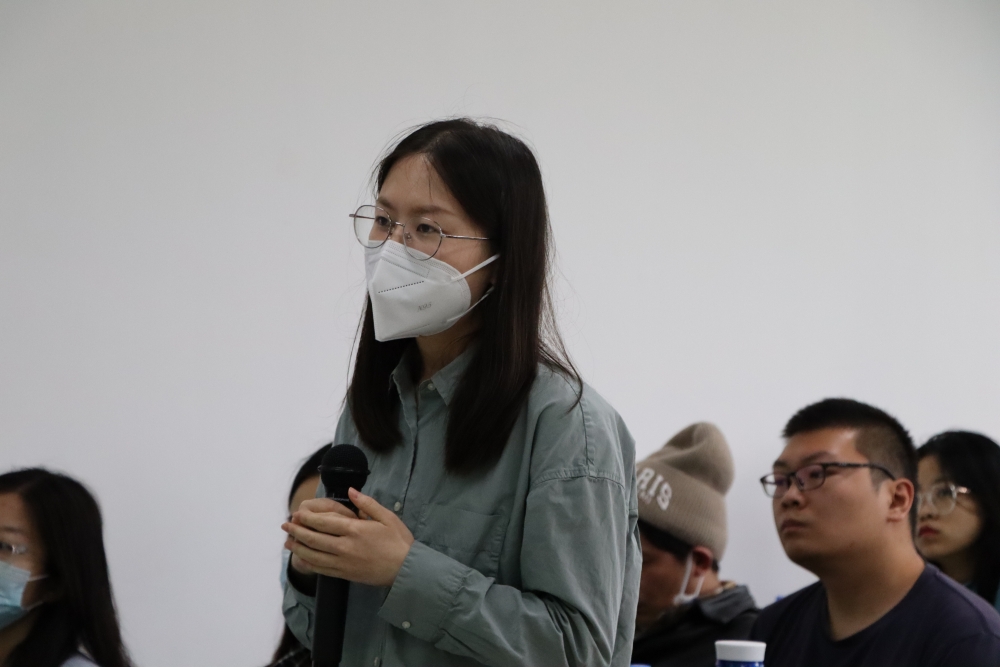
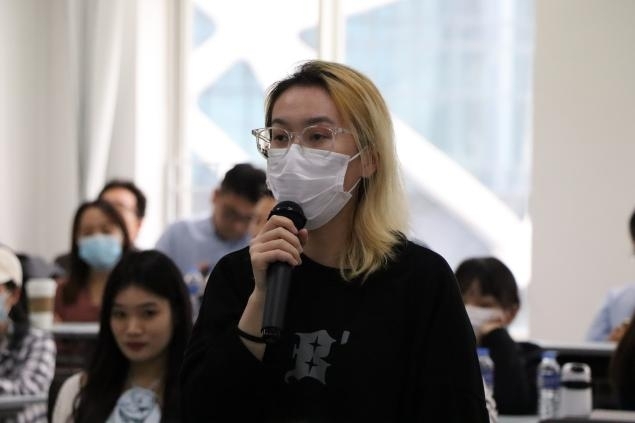
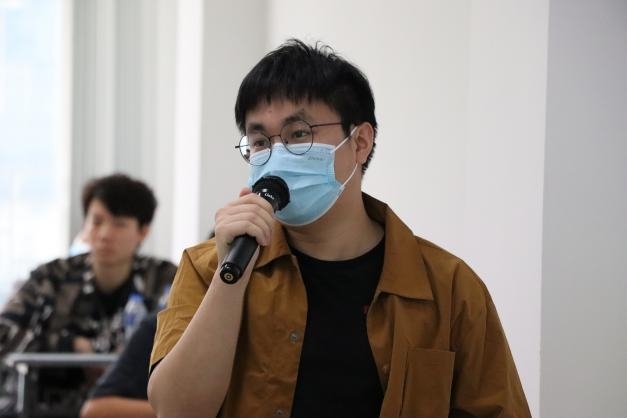
Mr.Fan patiently answered questions raised by students





